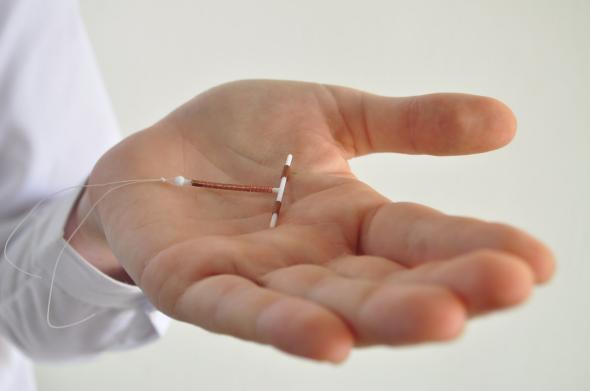Do Lester Holt, David Muir, Scott Pelley, and their evening news colleagues understand how hormonal birth control works? If they do, they rarely say so, according to a study recently accepted for publication in the journal Contraception. Researchers Elizabeth W. Patton, Michelle H. Moniz, Lauren S. Hughes, Lorraine Buis, and Joel Howell, most of whom are medical doctors, reviewed 116 news segments about contraception that aired on ABC, NBC, and CBS between January 2010 and July 2014. They found that news reporters relied more on politicians and even church leaders for information about contraception than on medical experts. “We found that when the network television media covers contraception, they do so within a largely political frame and emphasize the controversial aspects of contraception, while paying less attention to health aspects and content experts,” the researchers write.
This isn’t exactly a surprise to anyone who keeps up with the news: The last several years have seen repeated fights over the contraception mandate of the Affordable Care Act, which required insurers to cover 100 percent of the cost of women’s contraception, much to the chagrin of religious groups. Even so, the lack of health-related information in network news coverage is conspicuous. According to the researchers, only 31 percent of the segments they looked at included medical content, defined to include “method effectiveness, correct method use, side effects and non-contraceptive benefits following the CDC’s definition of effective contraceptive information.” Fifty-five percent of the segments didn’t even name a single specific method.
One of the researchers’ most striking findings was that only 4 percent of network news reports on contraception mention intrauterine devices, the “set it and forget it” option that reliably prevents pregnancy for years after insertion. IUDs have experienced a bit of a renaissance in recent years, as memories of the disastrous Dalkon Shield have faded, promising studies have demonstrated IUDs’ efficacy in reducing teen birth rates, and Bayer released a new hormonal IUD called Skyla, designed for women who haven’t had children. The contrast between the lady-blogosphere—where it sometimes seems like every other post is about how great IUDs are—and the world of TV news is striking. Even women who don’t read Jezebel deserve to know about the benefits (and drawbacks) of the IUD, but if they’re getting information from network news, they likely haven’t heard a peep.
On one hand, it’s network news programs’ responsibility to cover, well, news, and unfortunately most of the news involving contraception is political in nature. Viewers of NBC, ABC, and CBS news shows deserve to know about efforts by the Catholic Church and pro-life advocacy groups to curtail women’s reproductive rights, and it would be an abnegation of duty for news networks not to cover these legal battles. As for medical facts about contraception, they’re usually not particularly newsworthy, with the exception of rare developments like the Skyla. Hormonal birth control is a safe and time-tested method of preventing unwanted pregnancies: It’s hard to think of a more boring foundation for a news feature. (Most network news programs don’t spend lots of time reviewing the medical benefits of statins, either.)
On the other hand, TV news producers owe it to their viewers to provide plenty of context with every news story, and they’re apparently not providing enough context about contraception. It would be nice to assume that every American watching the news is already familiar with the nuanced differences among pills, rings, implants, IUDs, sponges, and condoms, but given the shortfalls in American sex ed, that’s not a reasonable assumption. (Remember when Rush Limbaugh “suggested that the amount of sex a woman has is related to the amount of birth control she needs to take”?) TV news producers are always racing the clock, but they do their viewers a disservice when they omit relevant background information about contraception. When network news reporters cover religious groups trying to prevent women from accessing contraception, they should take care to note which specific birth control methods are in play, how they work, and how effective they are. Network news isn’t, and shouldn’t be, our primary source of information on how birth control works, but it can do a much better job of covering contraception with clarity and specificity—two ideals all journalists should strive for.
